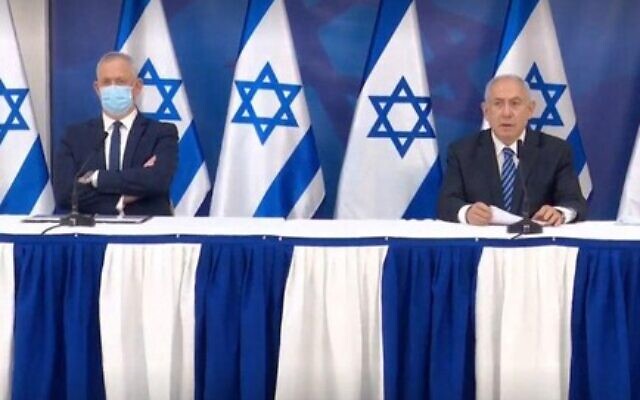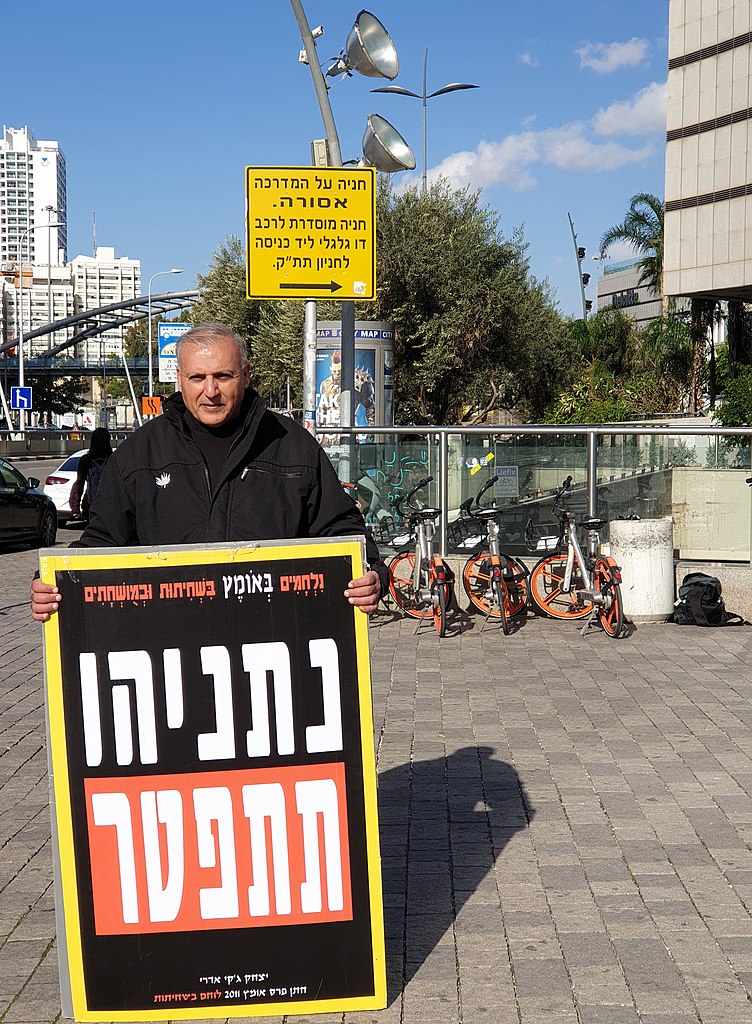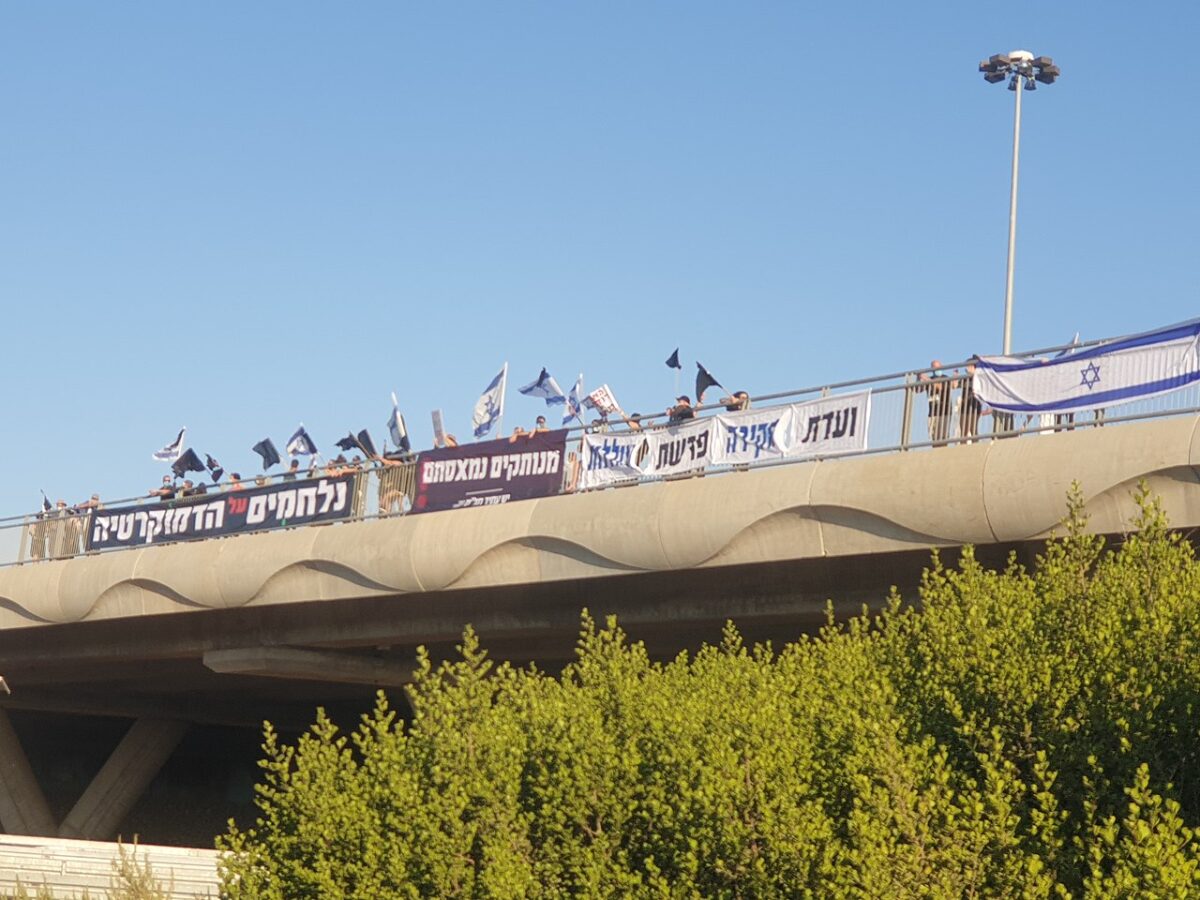Politically speaking, Prime Minister Benjamin Netanyahu was in a much better place a few months ago than he is today.
Netanyahu, the leader of the right-wing Likud Party and Israel’s longest-serving prime minister, was riding high after forming a national unity government with his centrist rival, Benny Gantz of the Blue and White Party, and winning praise for his seemingly deft handling of the coronavirus pandemic.

During this brief honeymoon period, when Netanyahu’s popularity rose, he was not necessarily defined by his indictment on criminal charges of bribery, fraud and breach of trust, or by the possibility that he might be the first sitting Israeli premier to be imprisoned.
With a sigh of relief, he could look forward to the task of governing the country, with Gantz playing second fiddle, for the next two years without having to face the prospect of waging yet another election campaign.
Since April 2019, Israelis have voted in three elections, all of which have been inconclusive, an unmistakable sign that Israel is plagued by deep divisions. Only after the third election were Netanyahu and Gantz finally successful in cobbling together a government.
In the past two weeks, however, Netanyahu’s lucky streak seems to have run out.
Public protests in major cities have erupted over his management of COVID-19 and the economic crisis flowing from it. Still other Israelis demanding Netanyahu’s resignation say he has no right to carry on as usual in light of the serious charges levelled against him by the attorney-general, Avihai Mandelblit.

Anti-Netanyahu rallies have taken place in front of his official residence in Jerusalem, near his private home in Caesarea, in Tel Aviv and at bridges and highways across the country. In a few instances, right-wing activists have attacked protesters.
Netanyahu has characterized the protests as “an attempt to trample on democracy” and claimed they have been fueled by the media. One of his most ardent loyalists, Transportation Minister Miri Regev, had dismissed them as “a campaign of incitement by the left,” financed by the New Israel Fund charitable organization.

Gantz has adopted a completely different attitude, having said that the right to demonstrate is the “lifeblood of democracy.”
These are the first nation-wide demonstrations in Israel since 2011, when protesters of all political persuasions voiced concerns about the rising cost of the living and the deterioration of public services and called for tax reforms.

Given the current situation, the national mood is grim. According to a survey released by the Israel Democracy Institute on August 5, only 38 percent of Israelis feel optimistic about the future of democratic governance, while 54 percent are pessimistic. Insofar as Netanyahu’s dubious personal and ethical behavior is concerned, 51 percent of respondents gave him a “poor” or “not good” grade. As for his performance in dealing with the deadly virus, 45 percent expressed dissatisfaction.
This is a far cry from the image of confidence and strength he projected in March, April and May. He placed a lockdown on commerce. He forbade Israelis from travelling abroad and banned foreign tourists from visiting. And he limited the movements of Israelis.
Netanyahu’s strategy worked reasonably well and Israel was held up as a shining example of how to cope effectively with the virus. Three months ago, a survey conducted by the Konrad Adenauer Foundation found that two-thirds of Israelis were satisfied with his efforts in tackling the contagion.
By then, almost one million people had lost their jobs, including self-employed Israelis whose businesses had collapsed. The handouts they received from the government could hardly keep them afloat.
In a public relations blunder for which he later apologized, Netanyahu collected more than $250,000 in retroactive tax breaks on personal expenses dating back nine years.

Toward the end of May, Netanyahu took a risk by opening up the economy. He urged Israelis to “get out and have a good time,” but warned them to exercise all necessary precautions. Restaurants and cafes were reopened and students went back to school to finish the semester before their summer break.
In the meantime, Netanyahu assured his supporters that he would annex the Jordan Valley, an issue that is really of concern to only a minority of Israelis. U.S. President Donald Trump, in his pro-Israel Middle East peace plan, sanctioned Israel’s annexation of one-third of the West Bank, but Trump’s approach was universally condemned by the Palestinians, the Arab and Muslim world, and the major powers.
Netanyahu’s decision to loosen restrictions, though well intentioned, has backfired. New infections have skyrocketed to around 1,700 to 2,000 per day, and Israel’s infection rate is now among the world’s highest. Five hundred and seventy eight Israelis have died and 345 are in serious condition.
The economy remains in dire straits. A forecast published by the Ministry of Finance on August 2 predicts that it will contract by nearly six percent this year, and that five years could elapse before it recovers completely from the shock of COVID-19.
Amid this crisis, a Jerusalem district court announced last month that the next phase in Netanyahu’s trial will start next January, and that he will have to appear at three hearings per week. It’s debatable whether Netanyahu will be able to focus on his job when he is fighting to clear his name and legacy in a court of law. Under these circumstances, the Supreme Court may rule that he should leave office during this interregnum.
With this scenario looming on the horizon, Netanyahu may well decide to dismantle the coalition and call new elections so that he can attain a sufficient plurality to win immunity from prosecution.
At present, this tactic may not work to his advantage because recent polls indicate that the Likud is on a downward trajectory. In the spring, it was expected to win 41 out of 120 Knesset seats. But of late, the figure has fallen to 29 seats.
In any event, the government is currently hanging by a thread due to a dispute over the forthcoming budget. Netanyahu wants a one-year budget, but Gantz insists on a two-year budget, as per his coalition agreement with the Likud.
If they fail to resolve their differences by August 25, the Knesset will be dissolved and a fourth election will take place in November, a prospect that scarcely any Israeli relishes, particularly in these dark times.
